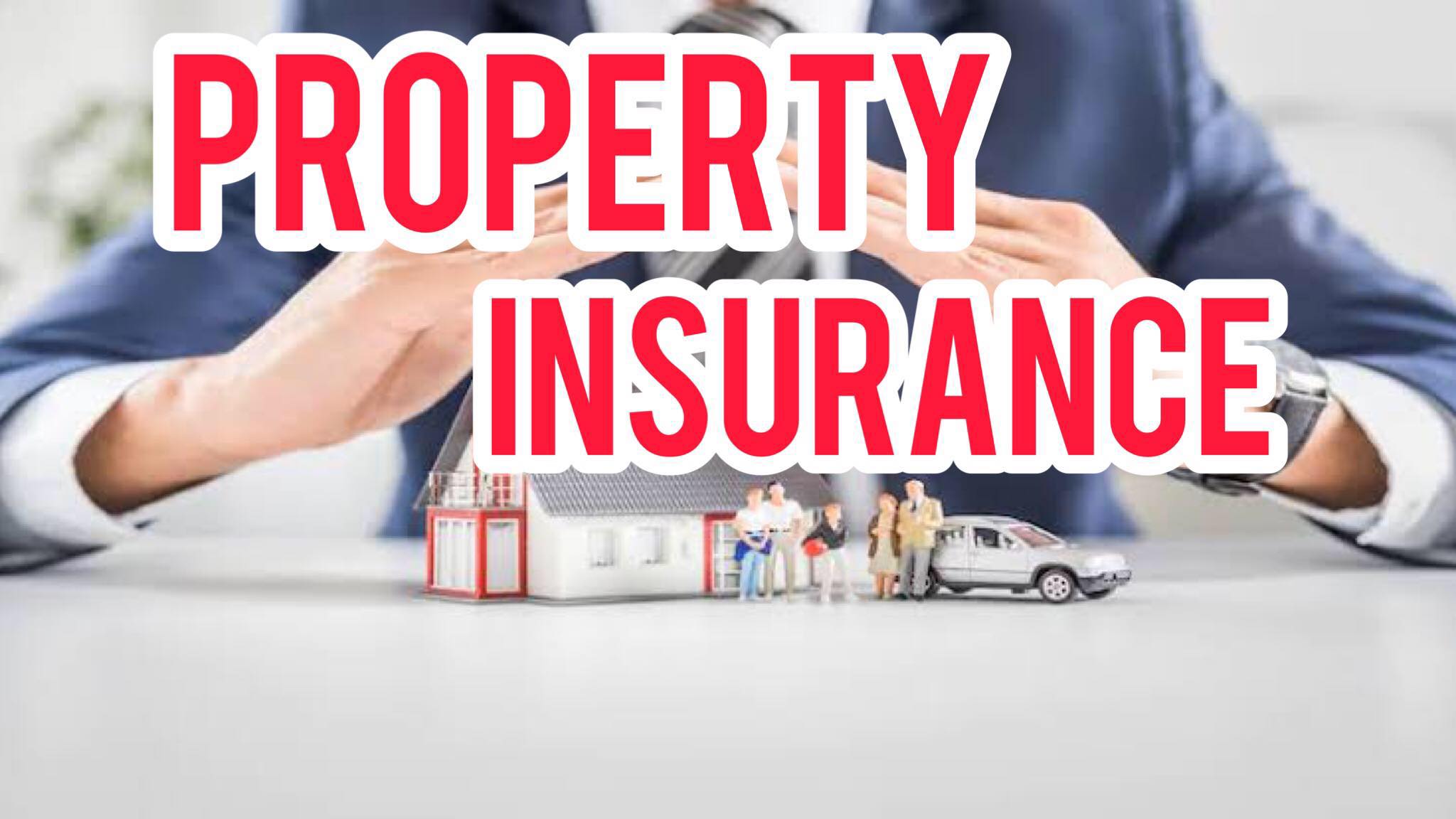Not having a property insurance is as good as playing with your future because it is very important.
Property Insurance: What Is It?
The insurance policies bought to safeguard homes and possessions both inside and outside the house are referred to as property insurance. To restore your financial stability in the event of a loss is the fundamental purpose of purchasing any insurance. In exchange for a guarantee from an insurance company that it would cover the cost of a substantial but unpredictable loss in the future, you consent to pay a tiny, predetermined charge to the firm today. In light of this, property insurance safeguards you against loss or damage to pricey personal goods, such as a home or a car. Auto insurance, homeowners insurance, renter’s insurance, and flood insurance are examples of different types of property insurance.
Assume you have a tidy nest egg and free and clear title to your home. You have every right to enjoy the use of that house for as long as you desire, as provided by law, as long as you continue to pay your property taxes. You may occupy it yourself, rent it out, let it sit empty, or sell it. When you’re comfortable, you might wonder, “Why do I need property insurance?”
Then, all of a sudden, that enormous tree in the backyard collapses into your home, seriously damaging it. Your nest egg is significantly depleted because you now have to pay for the whole cost of the house’s repairs. Your property insurance would have partially or fully covered if you had had it.
Types Of Property Insurance Coverage
Replacement cost, actual cash value, and extended replacement costs are the three types of property insurance coverage.
Replacement cost
This covers the price of fixing or replacing items with ones of comparable or greater worth. Instead of using an item’s cash worth as the basis for coverage, replacement cost values are used.
Actual cash value
The owner or renter is given the replacement cost less depreciation under actual cash value coverage. The worth of a damaged object that is 10 years old is what you receive, not a new one.
Extended replacement costs
If building expenses have increased, extended replacement costs will pay more than the coverage limit; nevertheless, this typically won’t go past 25% of the maximum. The limit is the highest benefit amount an insurance provider will offer for a certain circumstance or occurrence when you purchase insurance.
Also Read: Auto Insurance: Best Review In 2023
Who Needs Property Insurance?
Basically someone who owns pricey real estate. In fact, having property insurance is often required of you by the law or a mortgage deal. For instance, all 50 U.S. states mandate that motorists have auto insurance, typically in the form of liability insurance.
Liability insurance pays for repairs and monetary compensation to parties other than the party at fault in an accident. For instance, automobile repairs and medical expenses for the other driver and any passengers are covered by the at-fault party’s liability insurance. Fortunately, you have the option to purchase property insurance when you buy the necessary liability coverage (in the form of collision and comprehensive insurance for auto insurance), protecting you from financial hardship if your own car is damaged in the collision.
How Does Property Insurance Works?
Typical weather-related perils that are covered by property insurance include harm from fire, smoke, wind, hail, the effect of snow and ice, lightning, and more. The structure and its contents are covered by property insurance, which also provides protection against theft and vandalism. In the event that someone other than the property owner or tenant is hurt while on the property and decides to file a lawsuit, property insurance also offers liability coverage.
Property insurance coverage often don’t cover damage caused by various occurrences, such as floods, tsunamis, drain and sewage backups, seeping groundwater, standing water, and a range of other water sources. Typically, neither earthquake damage nor mold are covered. Additionally, most insurance plans do not provide coverage for severe occurrences like nuclear disasters, wars, or acts of terrorism.
The majority of homeowners invest in a hybrid coverage that covers physical loss or damage brought on by 16 dangers, including as theft, fire, and vandalism. The HO3 policy’s coverage is subject to a number of restrictions and exclusions. Certain valuables and collectibles, such as gold, wedding rings and other jewels, furs, money, guns, and other goods, have a predefined limit on coverage. For unintentional breakage/damage and enigmatic disappearance (lost, misplaced) of valuables, including fine art and antiques, no coverage is typically included in a HO3.
All of the goods covered by a HO3 homeowners policy are covered by a HO5 policy, which is more focused on the home’s physical structure and its contents, such as its furniture, appliances, clothing, and other personal belongings. There is no coverage for earthquakes or floods in a HO5. Homes that were either built in the last 30 years or remodeled in the previous 40 years are eligible for HO5 insurance plans, which normally cover any damages at replacement cost.
What Does Property Insurance Cover?
Many homeowners have wildly erroneous ideas about what their homes insurance truly covers, according to a poll that was published in the Journal of Financial Planning. A 2007 survey by the National Association of Insurance Commissioners was reported in The New York Times, which found that 33% of homeowners thought flood damage would be covered, 51% thought damage from a main water line break would be covered, and 34% thought mold damage is covered. The risks (causes of property destruction) that are really not generally covered include:
- Flood damage (this is a separate policy)
- Earthquake (this is also a separate policy)
- Mold
- Maintenance damage (e.g. worn-out plumbing, electrical wiring, air conditioners, heating units, roofing etc., as well as mold and pest infestation)
- Sewer backup
In order for anything to be covered by a policy, it frequently states that it must be “sudden and accidental,” which means that it wasn’t a steady leak that caused harm over a long period of time. This is frequently not covered by insurance. Your roof won’t likely be covered if it caves in due to aging rather than storm damage. The risks that usually covered include:
- Fire or lightning
- Windstorm or hail
- Explosion
- Smoke
- Theft
- Vandalism or malicious mischief
- Riot or civil commotion
- Damage caused by aircraft or vehicles
- Volcanic eruption
Liability Coverage
Many insurance contracts also have a crucial clause for liability insurance coverage, in addition to protecting the value of your house or other property. This may not seem like a big deal to you. However, there are countless ready attorneys looking everywhere for cases to bring against people like you. Automobile owners are likely more familiar with liability coverage than homeowners are.
You’ll be responsible for any damage caused by the fire if you neglect your charcoal barbecue and it causes your neighbor’s home to catch fire. You have paid the insurance company’s premiums in order for it to cover more substantial claims when they do arise. The same rule applies to anyone harmed on your property who needs medical care.
You could be entitled to compensation if something you own—like a diamond ring—is stolen while you’re away. Make careful to offer proof that you owned the item stolen, and you should be able to supply the insurance provider with a police record. You should be aware of the coverage your policy provides and, more importantly, excludes. Insurance companies can’t continue in business by offering cheap coverage for every damage that could occur to your property.
Also Read: Best Homeowners Insurance Review 2023
Additional (Non) Coverage
Typically, home-based enterprises are not insured. This excludes a home office, but rather a location where guests enter your house, such a workshop where you fix furniture. To effectively cover this sector and the associated responsibility, you will want a different company (commercial) coverage. Once more, these laws differ from one state and one country to the next.
Additionally, your homeowners policy may be instantly terminated by the insurance carrier if your property, particularly your house, is empty for longer than a predetermined amount of time, often 30 days. It is thought that an unoccupied home is far more vulnerable to hazards like fire or theft, changing the risk profile sufficiently to necessitate a different insurance. If you own a second home or a vacation house, you could obtain a different insurance to cover it as well.
Important Things To Note When Buying Property Insurance
Verify whether replacement cost or actual cash value (ACV) repairs are covered by your insurance policy. The latter is typically far superior. As an illustration, if your roof needs to be entirely replaced due to damage, the replacement cost will cover the cost of the replacement less your deductible, whereas ACV will pay you what the roof’s estimated actual value was at the time of the damage. ACV is less expensive than replacement cost coverage, which is the trade-off.
Some insurance providers provide rates for their plans that appear improbable. If a firm has no reputation yet offers incredibly low prices, this should raise suspicions. Don’t just trust the salesman’s assurances; research the company’s reputation first. Examine the policy to discover what it includes and excludes.
It’s possible to discover too late that the insurance you believed you had was merely the minimal minimum required by law in your region. Make sure you get high-quality coverage if you want to profit from property insurance. Keep in mind that inexpensive insurance might cost a lot of money.
What Is Property Insurance Coverage/Adjustment?
Property insurance coverage entails that an insurance provider will assist in compensating you for losses or damage to personal property you possess, either on the basis of the item’s real worth or its replacement value. An insurance policy lasting a year often covers property.
The most important consideration when determining whether you require property insurance is your ability to pay for any potential damages out of pocket. Property insurance is a crucial sort of protection that may shield you from damages of tens of thousands or even hundreds of thousands of dollars.
An insurance company representative known as a property insurance adjuster comes or calls you following a loss or damage to your property. The property insurance adjuster looks into your claims, gets information from you, records what they discover, and develops a cost estimate for repairs or replacement. The complexity or seriousness of the claim, among other things, might affect how long it takes to obtain your settlement. Learn More.

Sage is a financial/consumer journalist and senior editor, personal finance, of TrendsHQ. EXPERTISE: Personal Finance, Careers, Jobs, Scholarships, and Entertainment.
